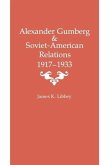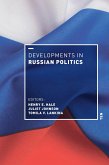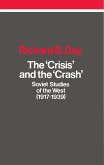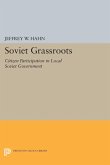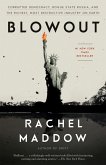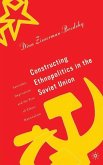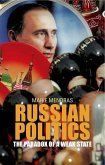Post-Soviet Politics
Herausgeber: White, Stephen L; Moore, Cerwyn
Post-Soviet Politics
Herausgeber: White, Stephen L; Moore, Cerwyn
- Broschiertes Buch
- Merkliste
- Auf die Merkliste
- Bewerten Bewerten
- Teilen
- Produkt teilen
- Produkterinnerung
- Produkterinnerung
Around 20 years since the end of the Cold War, social, political and economic turmoil appears to have been replaced by a period of stability within Russia. The broader shift from a bi-polar world to one of multi-polarity in which rising powers and former Great Powers vie for representation has, however, not been without considerable instability as Russia has sought to re-define her status in the post-Communist period. These relations have, of course, been further complicated by a series of conflicts in post-Soviet space, ethnic wars within Russia and on her borders, and broader political and…mehr
Andere Kunden interessierten sich auch für
![Alexander Gumberg and Soviet-American Relations Alexander Gumberg and Soviet-American Relations]() James K LibbeyAlexander Gumberg and Soviet-American Relations31,99 €
James K LibbeyAlexander Gumberg and Soviet-American Relations31,99 €![Developments in Russian Politics 10 Developments in Russian Politics 10]() Developments in Russian Politics 1037,99 €
Developments in Russian Politics 1037,99 €![The Crisis and the Crash: Soviet Studies of the West (1917-1939) The Crisis and the Crash: Soviet Studies of the West (1917-1939)]() Richard B. DayThe Crisis and the Crash: Soviet Studies of the West (1917-1939)26,99 €
Richard B. DayThe Crisis and the Crash: Soviet Studies of the West (1917-1939)26,99 €![Soviet Grassroots Soviet Grassroots]() Jeffrey W HahnSoviet Grassroots63,99 €
Jeffrey W HahnSoviet Grassroots63,99 €![Blowout Blowout]() Rachel MaddowBlowout17,99 €
Rachel MaddowBlowout17,99 €![Constructing Ethnopolitics in the Soviet Union Constructing Ethnopolitics in the Soviet Union]() Constructing Ethnopolitics in the Soviet Union58,99 €
Constructing Ethnopolitics in the Soviet Union58,99 €![Russian Politics Russian Politics]() Marie MendrasRussian Politics29,99 €
Marie MendrasRussian Politics29,99 €-
-
-
Around 20 years since the end of the Cold War, social, political and economic turmoil appears to have been replaced by a period of stability within Russia. The broader shift from a bi-polar world to one of multi-polarity in which rising powers and former Great Powers vie for representation has, however, not been without considerable instability as Russia has sought to re-define her status in the post-Communist period. These relations have, of course, been further complicated by a series of conflicts in post-Soviet space, ethnic wars within Russia and on her borders, and broader political and social changes associated with national and Islamic revivalism, as well as the war on terror. Debates both within and on the politics of post-Soviet relations continue, as complex regional dynamics in Central Asia, the Greater Middle East and Eastern Europe shape foreign relations. Equally, the end of Communism, the ensuing political liberalism and economic 'shock' therapy have led to significant changes within the social make-up of Russia. These themes have been used not only to offer insight into the changing social, economic and political relations in the Yeltsin and Putin eras, but this has also led to considerable debates about exactly what post-Communism and Post-Sovietism actually mean. This context affords a much needed opportunity to revisit post-Soviet politics in order to collate seminal pieces on the historical trends, political changes and international dynamics which continue to evolve, and which have framed the post-Communist period. The central aim of these four volumes is to capture this diversity so as offer a timely collection of seminal excerpts on post-Soviet politics, thereby giving insight into how we understand Russia today.
Hinweis: Dieser Artikel kann nur an eine deutsche Lieferadresse ausgeliefert werden.
Hinweis: Dieser Artikel kann nur an eine deutsche Lieferadresse ausgeliefert werden.
Produktdetails
- Produktdetails
- Verlag: Sage Publications
- Four-Volume Set edition
- Seitenzahl: 1616
- Erscheinungstermin: 3. Oktober 2012
- Englisch
- Abmessung: 254mm x 175mm x 127mm
- Gewicht: 3057g
- ISBN-13: 9781446208090
- ISBN-10: 1446208095
- Artikelnr.: 35084375
- Herstellerkennzeichnung
- Libri GmbH
- Europaallee 1
- 36244 Bad Hersfeld
- gpsr@libri.de
- Verlag: Sage Publications
- Four-Volume Set edition
- Seitenzahl: 1616
- Erscheinungstermin: 3. Oktober 2012
- Englisch
- Abmessung: 254mm x 175mm x 127mm
- Gewicht: 3057g
- ISBN-13: 9781446208090
- ISBN-10: 1446208095
- Artikelnr.: 35084375
- Herstellerkennzeichnung
- Libri GmbH
- Europaallee 1
- 36244 Bad Hersfeld
- gpsr@libri.de
Stephen White is the James Bryce Professor of Politics, a Senior Research Associate of the University of Glasgow′s School of Central and East European Studies, and a Visiting Professor at the Institute of Applied Politics in Moscow. He was elected a Fellow of the British Academy in 2010. His research interests focus on Soviet and post-Soviet politics, with special emphasis on elections, voting and nonvoting, parties, political elites, public opinion and the media; he also works on the current politics and foreign policy of Belarus and Ukraine, on Russian foreign policy, and political graphics. Cerwyn Moore is Senior Lecturer in the Department of Political Science and International Studies (POLSIS) at the University of Birmingham. He has written extensively on IR theory and political violence in the North Caucasus and has won a series of awards to study aspects of political violence, such as suicide attacks in Chechnya, and policies designed to counter terrorism in public places (with Jon Coaffee, Lee Bosher and David Fletcher). He also works on hermeneutic approaches to global politics.
VOLUME ONE: FROM THE USSR TO A POST-COMMUNIST RUSSIA Causes of the Collapse of the USSR - Alexander Dallin The Soviet Union - Vladimir Shlapentokh A Normal Totalitarian Society Was the Soviet System Reformable? - Stephen Cohen The Soviet Union - Archie Brown Reform of the System or Systematic Transformation? The Reform of the Soviet System and the Demise of the Soviet State - Mark Kramer The Question of Questions - Karen Dawisha Was the Soviet Union Worth Saving? Reform and Revolution in the Late Soviet Context - Stephen Hanson Alternative Pasts, Future Alternatives? - Georgi Derluguian A Reply - Stephen Cohen Gorbachev and the Reform of the Soviet System - Archie Brown Gorbachev
s Socialism in Historical Perspective - R. Davies Society Transformed? Rethinking the Social Roots of Perestroika - Donna Bahry The Ravages of
Market Bolshevism
- Dmitri Glinski and Peter Reddaway Evaluating Yeltsin as Leader - George Breslauer The End of the Transition Paradigm - Thomas Carothers The Rise of Competitive Authoritarianism - Steven Levitsky and Lucan Way The Myth of the Authoritarian Model - Michael McFaul and Kathryn Stoner-Weiss How Putin
s Crackdown Holds Russia back Passive Revolution, Perestroika and the Emergence of the New Russia - Rick Simon The Dual State in Russia - Richard Sakwa The Uncertain Future of Russiäs Weak State Authoritarianism - Stephen Hanson Rethinking Post-Communist Transition - Stephen White VOLUME TWO: CITIZENS AND POLITICS December 1993 as a Replication of Late-Soviet Electoral Practices - Michael Urban Elections Russian-Style - Stephen White
It
s the Economy, Comrade!
- Ian McAllister and Stephen White Parties and Voters in the 2007 Russian Duma Election Voting
against All
in Post-Communist Russia - Ian McAllister and Stephen White Political Disengagement in Post-Communist Russia - Stephen White A Qualitative Study Explaining the Emergence and Persistence of Class Voting for Presidential Candidates in Post-Soviet Russia, 1993-2001 - Geoffrey Evans and Stephen Whitefield The Putin Vote - Timothy Colton and Henry Hale Presidential Electorates in a Hybrid Regime How Do Electors Respond to an
Unfair
Election? The Experience of Russians - Richard Rose and William Mishler Party-System Development under Putin - Kenneth Wilson Party Politics in Russia - Vladimir Gel
man From Competition to Hierarchy Engineering Victory - Regina Smyth, Anna Lowry and Brandon Wilkening Institutional Reform, Informal Institutions and the Formation of a Hegemonic Party Regime in the Russian Federation Dominant Party Regimes and the Commitment Problem - Ora John Reuter and Thomas Remington The Case of United Russia Power and Opposition in the Former Soviet Union - Luke March The Communist Parties of Moldova and Russia The Putin Phenomenon - Stephen White and Ian McAllister The Executive Deception - M. Steven Fish Super-Presidentialism and the Degradation of Russian Politics Russia - Petra Schleiter and Edward Morgan-Jones The Benefits and Perils of Presidential Putin, Putiniana and the Question of a Post-Soviet Cult of Personality - Julie Cassiday and Emily Johnson Putin
s Militocracy - Olga Kryshtanovskaya and Stephen White Russiäs New Nobility - Andrei Soldatov and Irina Borogan The Rise of the Security Services in Putin
s Kremlin Russia on the Eve of the Millennium - Vladimir Putin VOLUME THREE: POLITY, ECONOMY AND SOCIETY Does Russia Have a
Market Economy
? - Richard Ericson Russiäs Asymmetric Capitalism in Comparative Perspective - David Lane Labour, Exploitation and Capitalism in Russia before and after 1991 - Michael Haynes Whither Reform? Ten Years of the Transition - Joseph Stiglitz Big Business and the State in Russia - Philip Hanson and Elizabeth Teague Talking about Health and Well-Being in Post-Soviet Ukraine and Russia - Pamela Abbott and Claire Wallace Coping with the Social Costs of
Transition
- John Round and Colin Williams Everyday Life in Post-Soviet Russia and Ukraine Managing Society - Graeme Robertson Protest, Civil Society and Regime in Putin
s Russia Civic Activity - Feminine Activity? Gender, Civil Society and Citizenship in Post-Soviet Russia - Suvi Salmenniemi Political Empowerment of Women in Soviet Union and Russia - K.B. Usha Ideology and Implementation Corruption and Organized Crime in Putin
s Russia - Leslie Holmes Crime in Contemporary Russia - Yakov Gilinskiy The Shift of Environmental Debates in Russia - Oleg Yanitsky Spinning the Market - Jennifer Patico The Moral Alchemy of Everyday Talk in Post-Socialist Russia A Neo-Soviet Model of the Media - Sarah Oates Selling Civil Society - Sarah Henderson Western Aid and the Non-Governmental Organization Sector in Russia Civil Society in Russia - Sarah Henderson State-Society Relations in the Post-Yeltsin Era VOLUME FOUR: FOREIGN RELATIONS Post-Soviet Russian Foreign Policy - Margot Light The First Decade Persistent Factors in Russian Foreign Policy - Alfred Rieber An Interpretive Essay The Legacy of the Color Revolutions for Russian Politics and Foreign Policy - Jeanne Wilson Russian Foreign Policy and Security in Central Asia and the Caucasus - Mohiaddin Mesbahi Assessing Unholy Alliances in Chechnya - Cerwyn Moore and Paul Tumelty From Communism and Nationalism to Islamism and Salafism Russian Policy towards the Commonwealth of Independent States - Mark Kramer Recent Trends and Future Prospects Do Russians See Their Future in Europe or the CIS? - Richard Rose and Neil Munro Slavophiles and Westernizers Redux - William Zimmerman Contemporary Russian Elite Perspectives 2009 National Security Strategy for the Period to 2020 (Strategiya natsional
noi bezopasnosti Rossiiskoi Federatsii do 2020 goda) 2010 Military Doctrine (Voennaya doktrina Rossiiskoi Federatsii) The 2008 Foreign Policy Concept (Kontseptsiya vneshnei politiki Rossiiskoi Federatsii) Elite Opinion and Foreign Policy in Post-Communist - Stephen White Russia Resurgent? Moscow
s Campaign to Coerce Georgia to Peace - Roy Allison Russia and the CSFP - Dov Lynch Russia - Vladimir Baranovsky A Part of Europe or apart from Europe? Vladimir Putin
s Vision of Russia as a Normal Country - Andrei Tsygankov The Realism of Russiäs Foreign Policy - Allen Lynch Russia and the Emerging Security Environment in Northeast Asia - Dmitri Trenin Russian Foreign Policy and the Global Political Environment - Derek Averre
s Socialism in Historical Perspective - R. Davies Society Transformed? Rethinking the Social Roots of Perestroika - Donna Bahry The Ravages of
Market Bolshevism
- Dmitri Glinski and Peter Reddaway Evaluating Yeltsin as Leader - George Breslauer The End of the Transition Paradigm - Thomas Carothers The Rise of Competitive Authoritarianism - Steven Levitsky and Lucan Way The Myth of the Authoritarian Model - Michael McFaul and Kathryn Stoner-Weiss How Putin
s Crackdown Holds Russia back Passive Revolution, Perestroika and the Emergence of the New Russia - Rick Simon The Dual State in Russia - Richard Sakwa The Uncertain Future of Russiäs Weak State Authoritarianism - Stephen Hanson Rethinking Post-Communist Transition - Stephen White VOLUME TWO: CITIZENS AND POLITICS December 1993 as a Replication of Late-Soviet Electoral Practices - Michael Urban Elections Russian-Style - Stephen White
It
s the Economy, Comrade!
- Ian McAllister and Stephen White Parties and Voters in the 2007 Russian Duma Election Voting
against All
in Post-Communist Russia - Ian McAllister and Stephen White Political Disengagement in Post-Communist Russia - Stephen White A Qualitative Study Explaining the Emergence and Persistence of Class Voting for Presidential Candidates in Post-Soviet Russia, 1993-2001 - Geoffrey Evans and Stephen Whitefield The Putin Vote - Timothy Colton and Henry Hale Presidential Electorates in a Hybrid Regime How Do Electors Respond to an
Unfair
Election? The Experience of Russians - Richard Rose and William Mishler Party-System Development under Putin - Kenneth Wilson Party Politics in Russia - Vladimir Gel
man From Competition to Hierarchy Engineering Victory - Regina Smyth, Anna Lowry and Brandon Wilkening Institutional Reform, Informal Institutions and the Formation of a Hegemonic Party Regime in the Russian Federation Dominant Party Regimes and the Commitment Problem - Ora John Reuter and Thomas Remington The Case of United Russia Power and Opposition in the Former Soviet Union - Luke March The Communist Parties of Moldova and Russia The Putin Phenomenon - Stephen White and Ian McAllister The Executive Deception - M. Steven Fish Super-Presidentialism and the Degradation of Russian Politics Russia - Petra Schleiter and Edward Morgan-Jones The Benefits and Perils of Presidential Putin, Putiniana and the Question of a Post-Soviet Cult of Personality - Julie Cassiday and Emily Johnson Putin
s Militocracy - Olga Kryshtanovskaya and Stephen White Russiäs New Nobility - Andrei Soldatov and Irina Borogan The Rise of the Security Services in Putin
s Kremlin Russia on the Eve of the Millennium - Vladimir Putin VOLUME THREE: POLITY, ECONOMY AND SOCIETY Does Russia Have a
Market Economy
? - Richard Ericson Russiäs Asymmetric Capitalism in Comparative Perspective - David Lane Labour, Exploitation and Capitalism in Russia before and after 1991 - Michael Haynes Whither Reform? Ten Years of the Transition - Joseph Stiglitz Big Business and the State in Russia - Philip Hanson and Elizabeth Teague Talking about Health and Well-Being in Post-Soviet Ukraine and Russia - Pamela Abbott and Claire Wallace Coping with the Social Costs of
Transition
- John Round and Colin Williams Everyday Life in Post-Soviet Russia and Ukraine Managing Society - Graeme Robertson Protest, Civil Society and Regime in Putin
s Russia Civic Activity - Feminine Activity? Gender, Civil Society and Citizenship in Post-Soviet Russia - Suvi Salmenniemi Political Empowerment of Women in Soviet Union and Russia - K.B. Usha Ideology and Implementation Corruption and Organized Crime in Putin
s Russia - Leslie Holmes Crime in Contemporary Russia - Yakov Gilinskiy The Shift of Environmental Debates in Russia - Oleg Yanitsky Spinning the Market - Jennifer Patico The Moral Alchemy of Everyday Talk in Post-Socialist Russia A Neo-Soviet Model of the Media - Sarah Oates Selling Civil Society - Sarah Henderson Western Aid and the Non-Governmental Organization Sector in Russia Civil Society in Russia - Sarah Henderson State-Society Relations in the Post-Yeltsin Era VOLUME FOUR: FOREIGN RELATIONS Post-Soviet Russian Foreign Policy - Margot Light The First Decade Persistent Factors in Russian Foreign Policy - Alfred Rieber An Interpretive Essay The Legacy of the Color Revolutions for Russian Politics and Foreign Policy - Jeanne Wilson Russian Foreign Policy and Security in Central Asia and the Caucasus - Mohiaddin Mesbahi Assessing Unholy Alliances in Chechnya - Cerwyn Moore and Paul Tumelty From Communism and Nationalism to Islamism and Salafism Russian Policy towards the Commonwealth of Independent States - Mark Kramer Recent Trends and Future Prospects Do Russians See Their Future in Europe or the CIS? - Richard Rose and Neil Munro Slavophiles and Westernizers Redux - William Zimmerman Contemporary Russian Elite Perspectives 2009 National Security Strategy for the Period to 2020 (Strategiya natsional
noi bezopasnosti Rossiiskoi Federatsii do 2020 goda) 2010 Military Doctrine (Voennaya doktrina Rossiiskoi Federatsii) The 2008 Foreign Policy Concept (Kontseptsiya vneshnei politiki Rossiiskoi Federatsii) Elite Opinion and Foreign Policy in Post-Communist - Stephen White Russia Resurgent? Moscow
s Campaign to Coerce Georgia to Peace - Roy Allison Russia and the CSFP - Dov Lynch Russia - Vladimir Baranovsky A Part of Europe or apart from Europe? Vladimir Putin
s Vision of Russia as a Normal Country - Andrei Tsygankov The Realism of Russiäs Foreign Policy - Allen Lynch Russia and the Emerging Security Environment in Northeast Asia - Dmitri Trenin Russian Foreign Policy and the Global Political Environment - Derek Averre
VOLUME ONE: FROM THE USSR TO A POST-COMMUNIST RUSSIA Causes of the Collapse of the USSR - Alexander Dallin The Soviet Union - Vladimir Shlapentokh A Normal Totalitarian Society Was the Soviet System Reformable? - Stephen Cohen The Soviet Union - Archie Brown Reform of the System or Systematic Transformation? The Reform of the Soviet System and the Demise of the Soviet State - Mark Kramer The Question of Questions - Karen Dawisha Was the Soviet Union Worth Saving? Reform and Revolution in the Late Soviet Context - Stephen Hanson Alternative Pasts, Future Alternatives? - Georgi Derluguian A Reply - Stephen Cohen Gorbachev and the Reform of the Soviet System - Archie Brown Gorbachev
s Socialism in Historical Perspective - R. Davies Society Transformed? Rethinking the Social Roots of Perestroika - Donna Bahry The Ravages of
Market Bolshevism
- Dmitri Glinski and Peter Reddaway Evaluating Yeltsin as Leader - George Breslauer The End of the Transition Paradigm - Thomas Carothers The Rise of Competitive Authoritarianism - Steven Levitsky and Lucan Way The Myth of the Authoritarian Model - Michael McFaul and Kathryn Stoner-Weiss How Putin
s Crackdown Holds Russia back Passive Revolution, Perestroika and the Emergence of the New Russia - Rick Simon The Dual State in Russia - Richard Sakwa The Uncertain Future of Russiäs Weak State Authoritarianism - Stephen Hanson Rethinking Post-Communist Transition - Stephen White VOLUME TWO: CITIZENS AND POLITICS December 1993 as a Replication of Late-Soviet Electoral Practices - Michael Urban Elections Russian-Style - Stephen White
It
s the Economy, Comrade!
- Ian McAllister and Stephen White Parties and Voters in the 2007 Russian Duma Election Voting
against All
in Post-Communist Russia - Ian McAllister and Stephen White Political Disengagement in Post-Communist Russia - Stephen White A Qualitative Study Explaining the Emergence and Persistence of Class Voting for Presidential Candidates in Post-Soviet Russia, 1993-2001 - Geoffrey Evans and Stephen Whitefield The Putin Vote - Timothy Colton and Henry Hale Presidential Electorates in a Hybrid Regime How Do Electors Respond to an
Unfair
Election? The Experience of Russians - Richard Rose and William Mishler Party-System Development under Putin - Kenneth Wilson Party Politics in Russia - Vladimir Gel
man From Competition to Hierarchy Engineering Victory - Regina Smyth, Anna Lowry and Brandon Wilkening Institutional Reform, Informal Institutions and the Formation of a Hegemonic Party Regime in the Russian Federation Dominant Party Regimes and the Commitment Problem - Ora John Reuter and Thomas Remington The Case of United Russia Power and Opposition in the Former Soviet Union - Luke March The Communist Parties of Moldova and Russia The Putin Phenomenon - Stephen White and Ian McAllister The Executive Deception - M. Steven Fish Super-Presidentialism and the Degradation of Russian Politics Russia - Petra Schleiter and Edward Morgan-Jones The Benefits and Perils of Presidential Putin, Putiniana and the Question of a Post-Soviet Cult of Personality - Julie Cassiday and Emily Johnson Putin
s Militocracy - Olga Kryshtanovskaya and Stephen White Russiäs New Nobility - Andrei Soldatov and Irina Borogan The Rise of the Security Services in Putin
s Kremlin Russia on the Eve of the Millennium - Vladimir Putin VOLUME THREE: POLITY, ECONOMY AND SOCIETY Does Russia Have a
Market Economy
? - Richard Ericson Russiäs Asymmetric Capitalism in Comparative Perspective - David Lane Labour, Exploitation and Capitalism in Russia before and after 1991 - Michael Haynes Whither Reform? Ten Years of the Transition - Joseph Stiglitz Big Business and the State in Russia - Philip Hanson and Elizabeth Teague Talking about Health and Well-Being in Post-Soviet Ukraine and Russia - Pamela Abbott and Claire Wallace Coping with the Social Costs of
Transition
- John Round and Colin Williams Everyday Life in Post-Soviet Russia and Ukraine Managing Society - Graeme Robertson Protest, Civil Society and Regime in Putin
s Russia Civic Activity - Feminine Activity? Gender, Civil Society and Citizenship in Post-Soviet Russia - Suvi Salmenniemi Political Empowerment of Women in Soviet Union and Russia - K.B. Usha Ideology and Implementation Corruption and Organized Crime in Putin
s Russia - Leslie Holmes Crime in Contemporary Russia - Yakov Gilinskiy The Shift of Environmental Debates in Russia - Oleg Yanitsky Spinning the Market - Jennifer Patico The Moral Alchemy of Everyday Talk in Post-Socialist Russia A Neo-Soviet Model of the Media - Sarah Oates Selling Civil Society - Sarah Henderson Western Aid and the Non-Governmental Organization Sector in Russia Civil Society in Russia - Sarah Henderson State-Society Relations in the Post-Yeltsin Era VOLUME FOUR: FOREIGN RELATIONS Post-Soviet Russian Foreign Policy - Margot Light The First Decade Persistent Factors in Russian Foreign Policy - Alfred Rieber An Interpretive Essay The Legacy of the Color Revolutions for Russian Politics and Foreign Policy - Jeanne Wilson Russian Foreign Policy and Security in Central Asia and the Caucasus - Mohiaddin Mesbahi Assessing Unholy Alliances in Chechnya - Cerwyn Moore and Paul Tumelty From Communism and Nationalism to Islamism and Salafism Russian Policy towards the Commonwealth of Independent States - Mark Kramer Recent Trends and Future Prospects Do Russians See Their Future in Europe or the CIS? - Richard Rose and Neil Munro Slavophiles and Westernizers Redux - William Zimmerman Contemporary Russian Elite Perspectives 2009 National Security Strategy for the Period to 2020 (Strategiya natsional
noi bezopasnosti Rossiiskoi Federatsii do 2020 goda) 2010 Military Doctrine (Voennaya doktrina Rossiiskoi Federatsii) The 2008 Foreign Policy Concept (Kontseptsiya vneshnei politiki Rossiiskoi Federatsii) Elite Opinion and Foreign Policy in Post-Communist - Stephen White Russia Resurgent? Moscow
s Campaign to Coerce Georgia to Peace - Roy Allison Russia and the CSFP - Dov Lynch Russia - Vladimir Baranovsky A Part of Europe or apart from Europe? Vladimir Putin
s Vision of Russia as a Normal Country - Andrei Tsygankov The Realism of Russiäs Foreign Policy - Allen Lynch Russia and the Emerging Security Environment in Northeast Asia - Dmitri Trenin Russian Foreign Policy and the Global Political Environment - Derek Averre
s Socialism in Historical Perspective - R. Davies Society Transformed? Rethinking the Social Roots of Perestroika - Donna Bahry The Ravages of
Market Bolshevism
- Dmitri Glinski and Peter Reddaway Evaluating Yeltsin as Leader - George Breslauer The End of the Transition Paradigm - Thomas Carothers The Rise of Competitive Authoritarianism - Steven Levitsky and Lucan Way The Myth of the Authoritarian Model - Michael McFaul and Kathryn Stoner-Weiss How Putin
s Crackdown Holds Russia back Passive Revolution, Perestroika and the Emergence of the New Russia - Rick Simon The Dual State in Russia - Richard Sakwa The Uncertain Future of Russiäs Weak State Authoritarianism - Stephen Hanson Rethinking Post-Communist Transition - Stephen White VOLUME TWO: CITIZENS AND POLITICS December 1993 as a Replication of Late-Soviet Electoral Practices - Michael Urban Elections Russian-Style - Stephen White
It
s the Economy, Comrade!
- Ian McAllister and Stephen White Parties and Voters in the 2007 Russian Duma Election Voting
against All
in Post-Communist Russia - Ian McAllister and Stephen White Political Disengagement in Post-Communist Russia - Stephen White A Qualitative Study Explaining the Emergence and Persistence of Class Voting for Presidential Candidates in Post-Soviet Russia, 1993-2001 - Geoffrey Evans and Stephen Whitefield The Putin Vote - Timothy Colton and Henry Hale Presidential Electorates in a Hybrid Regime How Do Electors Respond to an
Unfair
Election? The Experience of Russians - Richard Rose and William Mishler Party-System Development under Putin - Kenneth Wilson Party Politics in Russia - Vladimir Gel
man From Competition to Hierarchy Engineering Victory - Regina Smyth, Anna Lowry and Brandon Wilkening Institutional Reform, Informal Institutions and the Formation of a Hegemonic Party Regime in the Russian Federation Dominant Party Regimes and the Commitment Problem - Ora John Reuter and Thomas Remington The Case of United Russia Power and Opposition in the Former Soviet Union - Luke March The Communist Parties of Moldova and Russia The Putin Phenomenon - Stephen White and Ian McAllister The Executive Deception - M. Steven Fish Super-Presidentialism and the Degradation of Russian Politics Russia - Petra Schleiter and Edward Morgan-Jones The Benefits and Perils of Presidential Putin, Putiniana and the Question of a Post-Soviet Cult of Personality - Julie Cassiday and Emily Johnson Putin
s Militocracy - Olga Kryshtanovskaya and Stephen White Russiäs New Nobility - Andrei Soldatov and Irina Borogan The Rise of the Security Services in Putin
s Kremlin Russia on the Eve of the Millennium - Vladimir Putin VOLUME THREE: POLITY, ECONOMY AND SOCIETY Does Russia Have a
Market Economy
? - Richard Ericson Russiäs Asymmetric Capitalism in Comparative Perspective - David Lane Labour, Exploitation and Capitalism in Russia before and after 1991 - Michael Haynes Whither Reform? Ten Years of the Transition - Joseph Stiglitz Big Business and the State in Russia - Philip Hanson and Elizabeth Teague Talking about Health and Well-Being in Post-Soviet Ukraine and Russia - Pamela Abbott and Claire Wallace Coping with the Social Costs of
Transition
- John Round and Colin Williams Everyday Life in Post-Soviet Russia and Ukraine Managing Society - Graeme Robertson Protest, Civil Society and Regime in Putin
s Russia Civic Activity - Feminine Activity? Gender, Civil Society and Citizenship in Post-Soviet Russia - Suvi Salmenniemi Political Empowerment of Women in Soviet Union and Russia - K.B. Usha Ideology and Implementation Corruption and Organized Crime in Putin
s Russia - Leslie Holmes Crime in Contemporary Russia - Yakov Gilinskiy The Shift of Environmental Debates in Russia - Oleg Yanitsky Spinning the Market - Jennifer Patico The Moral Alchemy of Everyday Talk in Post-Socialist Russia A Neo-Soviet Model of the Media - Sarah Oates Selling Civil Society - Sarah Henderson Western Aid and the Non-Governmental Organization Sector in Russia Civil Society in Russia - Sarah Henderson State-Society Relations in the Post-Yeltsin Era VOLUME FOUR: FOREIGN RELATIONS Post-Soviet Russian Foreign Policy - Margot Light The First Decade Persistent Factors in Russian Foreign Policy - Alfred Rieber An Interpretive Essay The Legacy of the Color Revolutions for Russian Politics and Foreign Policy - Jeanne Wilson Russian Foreign Policy and Security in Central Asia and the Caucasus - Mohiaddin Mesbahi Assessing Unholy Alliances in Chechnya - Cerwyn Moore and Paul Tumelty From Communism and Nationalism to Islamism and Salafism Russian Policy towards the Commonwealth of Independent States - Mark Kramer Recent Trends and Future Prospects Do Russians See Their Future in Europe or the CIS? - Richard Rose and Neil Munro Slavophiles and Westernizers Redux - William Zimmerman Contemporary Russian Elite Perspectives 2009 National Security Strategy for the Period to 2020 (Strategiya natsional
noi bezopasnosti Rossiiskoi Federatsii do 2020 goda) 2010 Military Doctrine (Voennaya doktrina Rossiiskoi Federatsii) The 2008 Foreign Policy Concept (Kontseptsiya vneshnei politiki Rossiiskoi Federatsii) Elite Opinion and Foreign Policy in Post-Communist - Stephen White Russia Resurgent? Moscow
s Campaign to Coerce Georgia to Peace - Roy Allison Russia and the CSFP - Dov Lynch Russia - Vladimir Baranovsky A Part of Europe or apart from Europe? Vladimir Putin
s Vision of Russia as a Normal Country - Andrei Tsygankov The Realism of Russiäs Foreign Policy - Allen Lynch Russia and the Emerging Security Environment in Northeast Asia - Dmitri Trenin Russian Foreign Policy and the Global Political Environment - Derek Averre


